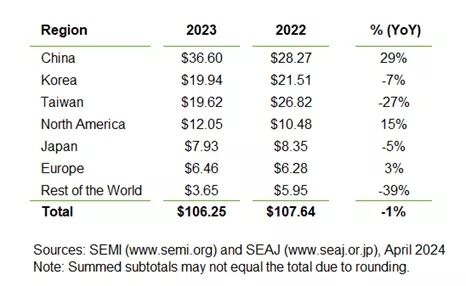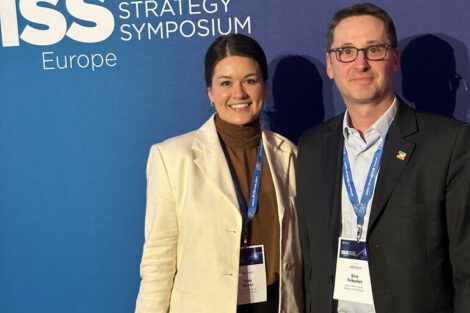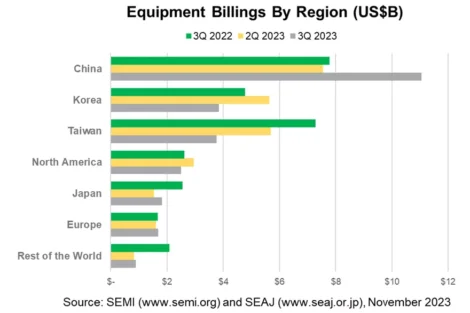To the Competitive Enterprise Institute (CEI), the case is clear: “Mandated Recycling of Computers – A Lose-Lose Proposition” is the title of a study which admits that there are vast amounts of e-waste caused by millions of obsolete home, office and data equipment. But all this, the study says, can be easily handled by the existing network of private recyclers and safely disposed in landfills. “Mandated recycling and green design would be disastrous. New design and recycle requirements will cripple technological innovation, and widespread recycling and substance bans will unleash a host of unintended environmental and health risks”.
If that sounds like crooked logic, contradicting all environmentally driven high-tech innovations achieved over the past 30 years – it also is the extremist position and by no means representative of the growing grass-roots concern about e-waste springing up in many US cities and states. Take Fern Abrams, director of environmental policy at IPC. To a degree, she goes along with the CEI position by explaining that the current focus on end-of-life issues of electronic equipment overlooks “that most environmental impacts occur during their production and use, and not at EOL”. The well-worn argument of other polluters being worse than “us”. Nevertheless, she affirms that individual states are up to the “perceived problem” and are moving forward to pass legislation.
State e-waste legislation taking off
California was first, as often in things environmental, with its Electronics Waste Recycling Act of 2003. It’s quite bold and even more rigorous than the EU’s WEEE directive. It forces consumers to pay an upfront recycling fee on all new equipment right at the point of sales. The fee goes on top of the purchase price. So far, it varies between 6 and 10 dollars according to the type of equipment. It also applies to remote and internet sales.
Equally well ahead – if different in the financing schemes – are the states Maine and Maryland. Since 2004, Maine levies a fee on equipment producers (importers, sellers) for funding local collecting and recycling centers. Municipalities kick in with their own contributions. Quite similar is the pace of progress in Maryland: here the counties pay for collection and recycling, reimbursed in part by their state government. However, this is a pilot program. How it will be implemented in the long run is not yet decided. In the end, taxpayers will have to foot the bill. These recycling schemes cover computers and TV sets only, no other appliances and tools as the WEEE does.
Other initiatives for e-waste collection with producer take-back provisions are pending in Massachusetts and New Jersey; a similar ordinance on the city level is being considered in New York. Back in August, the Computer Take Back campaign was looking forward to further initiatives in Oregon, Minnesota, Michigan, Wisconsin, Rhode Island and Washington State. How far they will go, and how far they are along, is not clear. Some members of the electronic industry are fighting very hard to keep electronics recycling bills from passing, says a Minnesota Senator. “While some companies like Hewlett Packard, Target and Best Buy are embracing this concept, others are fighting it with all they have. These companies, like IBM and many of the TV manufacturing companies like Panasonic and Sharp, should show they can be good corporate citizens and get on board with producer take back programs”.
Meanwhile, other grassroots organizations near the Eastern shore are taking up the slack assisting their state governments: the Northeast Recycling Coalition and the Eastern Region of the Council of State Governments. Both are developing guidelines for legislation of e-waste collection and recycling taking into account the interests of all stakeholders in the issue. Equipment vendors, such as Dell, HP, and Apple, have implemented their own recycling schemes, based on fees paid by the buyers.
Act from bottom up
Rounding out the state efforts, sparse as they are, is a growing number of grassroots organizations, confirming the public for installing recycling opportunities at their place of business and living. Most influential is the San Jose, California, based Computer Take Back Campaign, which convenes other groups in various states. Especially the large-scale export to off-shore countries with even laxer environmental regulations has caught the attention of the campaign. “The extent of the contamination is even worse than we had feared”. This is pointing to Greenpeace examination of unregulated equipment dismantling places in India and Southern China.
Equally alarmed about the obviously lucrative business of exporting e-waste is Rick Goss of the Arlington, Virginia, based Electronic Industries Alliance. But, he swears, US producers “do not participate or condone the sending of used electronics to facilities or countries that can’t manage them.” Instead there is a network of secondary dealers, not manufacturers, who collect the devices in the dark of the night and ship them abroad. Weak self-policing within the industry at home and even weaker governmental oversight in the receiving countries help these shady dealers escape their industry’s professed ethics standards. Strangely enough, the ban on CRTs in regular landfills, imposed in five states may have contributed to the rising e-waste exports.
EPA is reluctant to regulate e-waste
In fact, there are US government institutions that might be concerned with e-waste recycling. Above them all is the Environmental Protection Agency (EPA). But so far, EPA has only some voluntary programs at its disposal concerning recycling. There is the Electronic Product Environmental Assessment Tool to evaluate the performance of products over their life cycle in regard to their polluting effects. Then there is the Federal Electronics Challenge which “encourages” US governmental offices to only use products that are “environmentally preferable”. And a third pep program recently launched by the EPA is called Plug-in to e-Cycling. It tries to instill a sense of urgency for collecting and recycling by granting money for pilot projects. It’s obvious that these programs center on good-will initiatives but are evading the issue of mandating strict e-waste processing.
But there is indication that the issue can no longer be confined to voluntary measures. This year seems to be the turning point. Back in January, the issue bubbled up to the US Congress, when 22 House members introduced a bill for a National Computer Recycling Act. It proposes a flat $10.000 fee (in the guise of an additional sales tax) on CRT and LCD computer monitors and other electronic equipment that contains, in the stilted lawmakers‘ language, “a central processing unit.” Calling it a computer would do the trick as well. But, again, note that this otherwise laudable bill, like its predecessors implemented or pending in the various state houses, mentions just computers and monitors – not appliances and tools. The proceeds of the proposed fee would be awarded, in the form of grants, to certified private collecting and recycling organizations.
A second House bill would introduce tax incentives for US manufacturers that install recycling programs for their wares. A third initiative, in the US Senate, would instruct the EPA to do a cost-benefit analysis of recycling programs to develop a nationwide approach. It’s all quite modest and timid – but it’s a beginning. And it is commended by the EIA because it would level the playing field for all participants nationwide. Now, a vivid discussion is underway. Which way it will go remains to be seen. The industry favors a scheme that distributes the burden of e-waste regulation on all participants: industry, sellers and resellers and consumers. The voices demanding a voluntary approach are still strong. Especially the regulation of Maine is not universally accepted by all manufacturers. Among the contended issues, quite similar to the discussion in Europe, about the producer take-back fee assessment and how to deal with old equipment sold before any e-waste law is in force.
Werner Schulz
Helpful links
Share:









